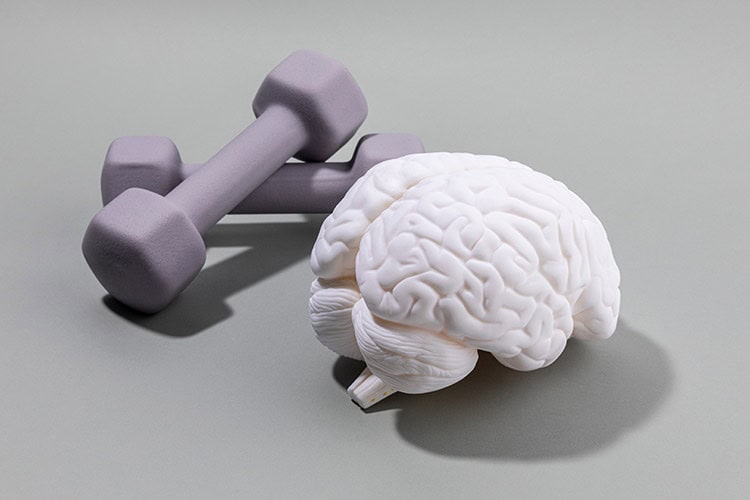
Why is it that some people have no trouble getting themselves to show up to the gym on a regular schedule, while others struggle to find the motivation to get off the couch?
If you’re struggling with motivation to hit the gym, you might wonder if there’s some secret that you’re missing out on. Why does it seem so easy for other people? Is there something you’re missing?
 The Science of Motivation
The Science of Motivation
The feeling of motivation comes from a chemical reaction in your brain. Scientifically, motivation is linked with the neurotransmitter dopamine. You’ve probably heard about dopamine before, most likely in the context of pleasure or satisfaction.
Dopamine isn’t just about feeling good, though. Research shows that “dopamine is released before we ever receive a reward” and so “its real job is to encourage us to act. It motivates us to achieve, while avoiding something bad” (Business Insider). If you want to feel motivated, then you need to do things to trigger dopamine in your brain.
Set Intentional, Incremental Goals
Dopamine levels differ from person to person, but you’re not simply at the mercy of whatever your brain naturally does. You’re in charge of your motivation. Setting incremental goals can help you close the intention-behavior gap and feel more motivated (Live Science). You want to get to the point where you are translating the desire to act into a behavior.
Instead of saying something vague and big like, “I want to work out more and lose a bunch of weight,” choose smaller, specific goals. For example, you might say, “I’m going to go to the gym for 30 minutes a day, 3 days a week.” As you achieve goals, you’re training your brain to associate working toward a goal with motivational feelings.
Get Others Involved
Research on motivation shows that getting other people involved is a powerful way to improve your motivation. Sharing your goals with others helps you stay accountable. Then, sharing your results with them reinforces the feelings of happiness, satisfaction, and reward that come with achieving your goals.
Working out in a group setting is also a great way to improve motivation. Joining a group training class provides social accountability and friendly competition. It also helps reinforce fitness as a habit. Plus, you’ll get encouragement and support from the other group members as well as the professional trainer leading the class. It’s not as expensive as one-on-one personal training, but you still get the motivational benefits of a fitness professional guiding you to set and achieve your goals. You can learn more about group training by contacting us to set up a gym tour and free fitness evaluation.
